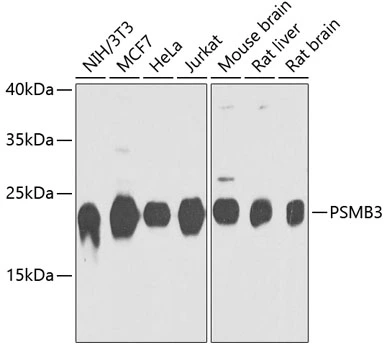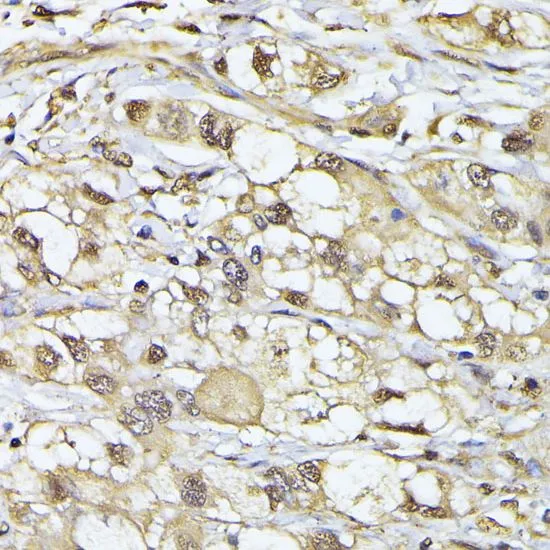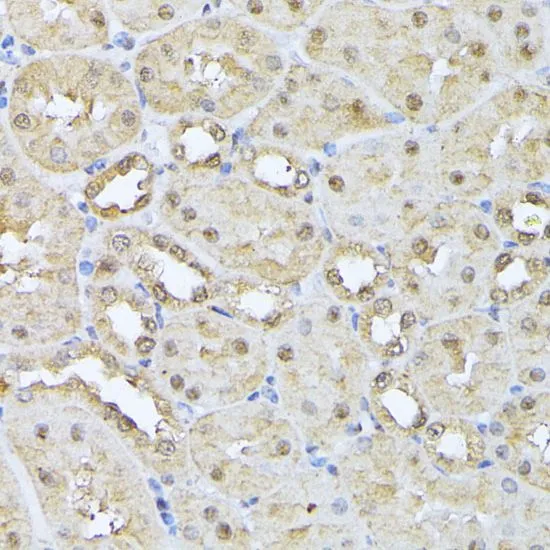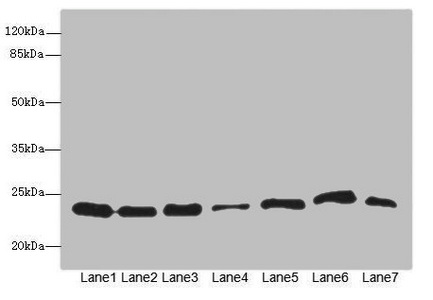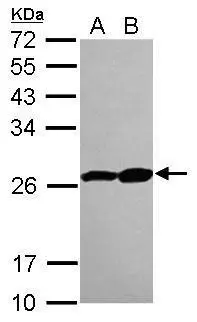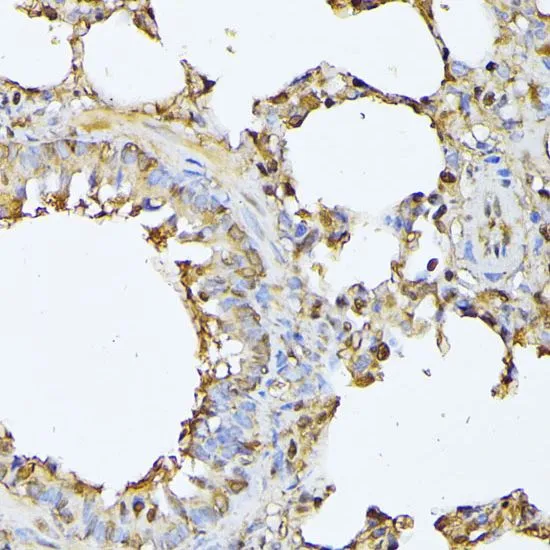
IHC-P analysis of rat lung tissue using GTX66592 Proteasome 20S beta 3 antibody. Dilution : 1:100
Proteasome 20S beta 3 antibody
GTX66592
ApplicationsWestern Blot, ImmunoHistoChemistry, ImmunoHistoChemistry Paraffin
Product group Antibodies
ReactivityHuman, Mouse, Rat
TargetPSMB3
Overview
- SupplierGeneTex
- Product NameProteasome 20S beta 3 antibody
- Delivery Days Customer9
- Application Supplier NoteWB: 1:500 - 1:2000. IHC-P: 1:50 - 1:200. *Optimal dilutions/concentrations should be determined by the researcher.Not tested in other applications.
- ApplicationsWestern Blot, ImmunoHistoChemistry, ImmunoHistoChemistry Paraffin
- CertificationResearch Use Only
- ClonalityPolyclonal
- ConjugateUnconjugated
- Gene ID5691
- Target namePSMB3
- Target descriptionproteasome 20S subunit beta 3
- Target synonymsHC10-II, proteasome subunit beta type-3, beta-3, epididymis secretory sperm binding protein, proteasome (prosome, macropain) subunit, beta type, 3, proteasome chain 13, proteasome component C10-II, proteasome subunit beta 3, proteasome theta chain
- HostRabbit
- IsotypeIgG
- Protein IDP49720
- Protein NameProteasome subunit beta type-3
- Scientific DescriptionThe proteasome is a multicatalytic proteinase complex with a highly ordered ring-shaped 20S core structure. The core structure is composed of 4 rings of 28 non-identical subunits; 2 rings are composed of 7 alpha subunits and 2 rings are composed of 7 beta subunits. Proteasomes are distributed throughout eukaryotic cells at a high concentration and cleave peptides in an ATP/ubiquitin-dependent process in a non-lysosomal pathway. An essential function of a modified proteasome, the immunoproteasome, is the processing of class I MHC peptides. This gene encodes a member of the proteasome B-type family, also known as the T1B family, that is a 20S core beta subunit. The 26 S proteasome may be involved in trinucleotide repeat expansion, a phenomenon which is associated with many hereditary neurological diseases. Pseudogenes have been identified on chromosomes 2 and 12. Alternative splicing results in multiple transcript variants [provided by RefSeq, Sep 2013]
- ReactivityHuman, Mouse, Rat
- Storage Instruction-20°C or -80°C,2°C to 8°C
- UNSPSC41116161

